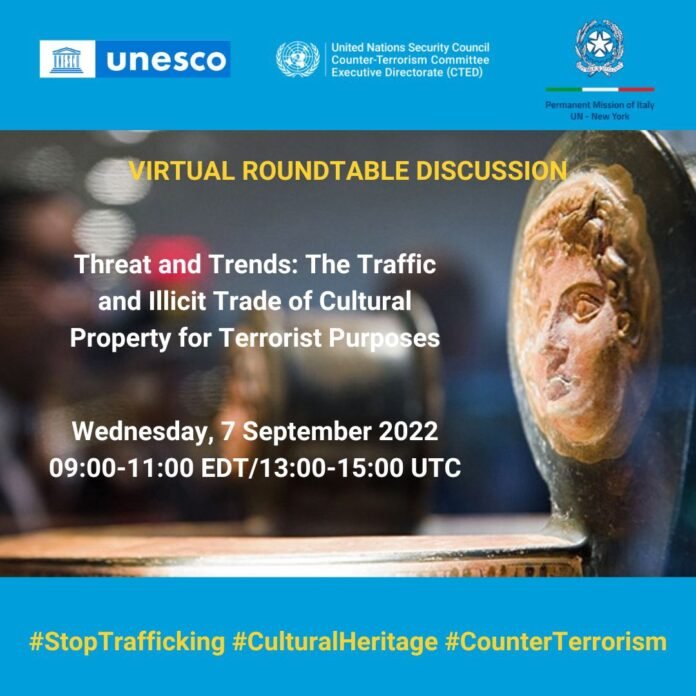NEW YORK, SEPTEMBER 6 – The traffic and illicit trade of cultural property for terrorist purposes will be the focus of a roundtable discussion co-organized tomorrow by the Counter-Terrorism Committee Executive Directorate (CTED) of the Security Council with UNESCO and the Permanent Mission of Italy to the UN. The Italian General Fabrizio Parrulli, Police and Military Adviser of the Italian Mission and former head of the special uniti of the Carabinieri specialized in the defense of cultural heritage will address the meeting along with representatives of CTED end UNESCO.
While condemning the destruction of cultural heritage in contexts of armed conflicts, including and notably by terrorist groups, the Security Council has highlighted on different occasions the role that the illicit trade and trafficking in cultural property can have in generating revenue to support recruitment efforts and strengthen the operational capacity of terrorist groups to organize and carry out attacks.
Most recently, in resolution 2617 (2021), the Security Council encouraged CTED “to raise awareness of the importance of Member State cooperation with investigations, prosecutions, seizure and confiscation as well as the return, restitution and repatriation of trafficked, illicitly exported or imported, stolen, looted, illicitly excavated or illicitly traded cultural property, through appropriate channels and in accordance with relevant legal frameworks as well as with the United Nations Convention against Transnational Organized Crime and the Protocols thereto and relevant regional, subregional, and bilateral agreements”.
Pursuant to its mandate resolution, CTED will convene experts from academia and civil society for an inaugural roundtable discussion on the terrorist dimension of the traffic and illicit trade of cultural property. The discussion will shed light on the nature, scope and discernable trends currently defining the phenomenon, and identify any existing research, legal and policy gaps and opportunities to be built upon to comprehensively address the issue at national, regional and international level, including within the framework of UNESCO’s related Conventions. (@OnuItalia)

